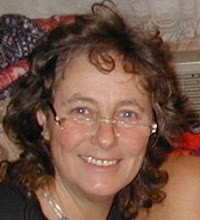I recently finished “reading” the biography of Che Guevara: A Revolutionary Life by Jon Lee Anderson. I chose the book on tape from our local public library while escaping from the spate of murder mysteries into the non-fiction section. It was the thickest set of cassettes on the shelf and I was anticipating a long 2 hr/day commute for at least six weeks.
I was amazed at the portrait of a learned prince of the Argentine upper crust driven to fight to the end of his life to defend social justice against corporate imperialism. It was nothing like the unlearned impression that I previously had of an insane, radical revolutionary. He reminded me of the characters my sons embody in their video games who fight overwhelming odds to defend the good.
When I sought to share my insights about Guevara, people would glare at me at the mention of Che’s name like I must be a pinko red communist armed revolutionary. I am shocked at the spontaneous negativity immediately generated at the sound of his name more than 40 years after his death.
Ernesto Guevara took a motorcycle journey in 1953 in his first year of college and saw the plight of the exploited masses in their own lands. It touched him to the core. He saw a pattern of colonial governments granting Latin American and African nations their independence, only to have North American or European corporations move into the wake. Che called the phenomenon “Neo-colonialism.”
He met Fidel after the popular uprising in Guatemala which ended the pro-corporate regime of General Jorge Ubico. The general elections that followed resulted in the socialist government of Jacobo Arbenz Guzán. After a year of sweeping land reform acts that antagonized the U.S.-based multinational company United Fruit Company, Arbenz was assassinated in a CIA-backed coup. Over the next four decades, the succession of military rulers would wage counter-insurgency warfare destabilizing Guatemalan society. The violence caused the deaths and disappearances of more than 140,000 Guatemalans, and some human rights activists put the death toll as high as 250,000. http://en.wikipedia.org/wiki/1954_Guatemalan_coup_d'%C3%A9tat
The short-lived success of Arbenz followed by CIA backed assassination left an indelible impression on the young revolutionaries, Ernesto and Fidel. Time and again they witnessed the same pattern: as soon as corporate interests were threatened, the democratically elected leader was assassinated with the help of the CIA, and replaced by a corporate friendly dictator.
Che reasoned that if you convinced the peasants that they could achieve self-determination, they would join the revolution. Castro and Guevara achieved this dream in Cuba where they overthrew the pro-corporate dictator, Batista, nationalized the natural resources, and have managed to maintain their sovereignty from neo-corporate invasion for over 50 years.
Guevara was a man of strong principles. He insisted on marital fidelity and treating women with respect. Rapists faced the firing squad after being tried in a court of their peers. He used to read Pablo Neruda poems out loud to his wife for entertainment. He was a Renaissance Man. Whatever he couldn’t do, he learned (except dancing). He was a military strategist, an economic strategist, a master chess player, as well as a medical doctor, healer, and philosopher. He was a published author and ran several newspapers and magazines. He was anything but a thug.
Like the heroes of old, Che sought to defend the lives of the common people which were being threatened by the evil of North American corporate exploitation. He led a revolution to free the people. Was Che any different than George Washington or Thomas Jefferson who were also products of the upper crust who took up arms to free their own country from the imperialist exploitation of Great Britain? Our founding fathers were militant revolutionaries inspired by radical philosophers like John Locke, Thomas Paine, and Frenchmen Voltaire and Rousseau. Che was driven by the philosophy of Carl Marx. Both our founding fathers and Guevara were militant armed revolutionaries driven by philosophies of social justice.
Today, as we watch the decline of American democracy guided by pro-corporate neo-con philosophy, the erosion of the Bill of Rights, and the government protection of corporate interests at the expense of the people, it becomes apparent that Ernesto Che Guevara predicted it all. He was a man before his time. He tried to nip the economic and political monster we face today in the bud. But with the help of our CIA, he was eliminated.
What really surprised me about reading his biography, was the powerfully negative reactions I encountered at the mention of his name. If I mention Thomas Jefferson or George Washington, I got responses imbued with positive energy. When I mention Che, I am assaulted with incredible negative energy. The propaganda machine that convinces people to vote against their own best interests has had a lasting legacy in the case of smearing the name of Ernesto Che Guevara, defender of the common people.
Subscribe to:
Post Comments (Atom)

Hello. This post is likeable, and your blog is very interesting, congratulations :-). I will add in my blogroll =). If possible gives a last there on my blog, it is about the TV de LCD, I hope you enjoy. The address is http://tv-lcd.blogspot.com. A hug.
ReplyDelete